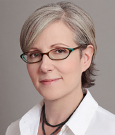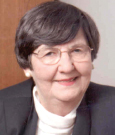You can’t control the wind, but you can adjust your sails,” said Mindy Greenstein, PhD, consulting psychologist and author, to begin her talk at the 2015 World Congress of Psycho-Oncology, held in July in Washington, DC. The sense of this proverb pervaded the entire session on cancer and aging.
Elders are the fastest-growing population of cancer patients with cancer, said Dr. Greenstein, and their needs are both similar to and different from younger ones. Older patients with cancer are in the midst of a “double whammy” in that they face a life-threatening illness within the context of life’s shortening.
Cancer and Aging: Similar yet Different
Similarities between cancer and the negative aspects of aging include coping with the sword of Damocles while living a normal life; uncertainty and vulnerability; learning to make the most of the present; focusing on what is most meaningful in life; and reinforcing one’s most adaptive character strengths and virtues. The last aspect, said Dr. Greenstein, includes transcendence, temperance, wisdom, humanity, courage, and a sense of social justice. “These are characteristics that can help one get through the cancer crisis, but they also can serve as a bridge to the younger generation.”
There are two major differences between cancer and aging. First, young patients with cancer know how different their experience is from that of others their age, whereas older patients with cancer see others like them all around. Second, older patients have had long life experiences dealing with crises of one sort or another and can use what they have learned to deal with cancer. By and large, younger patients do not.
In many ways, said Dr. Greenstein, coping with cancer is a lot like coping with aging, so clinicians can teach patients to use skills derived from the latter to get them through the former.
Silver Tsunami
‘Silver tsunami’ is the term being used to describe the crisis in cancer care, said Jimmie Holland, MD, Wayne E. Chapman Chair in Psychiatric Oncology, Memorial Sloan Kettering Cancer Center (Memorial), New York. It refers to people with the highest incidence of cancer (59% of all patients) and for whom there are often the fewest psychosocial resources.
Dr. Holland described two psychosocial resources she developed: Cancer and Aging Reflections of Elders (CARE) and a reading group known as the Vintage Readers Book Club.
The latter began as a group of two—Dr. Holland and her granddaughter—who decided to start a book club reading the Harvard Classics. When her granddaughter went off to college, she suggested continuing the club with some older patients with cancer, most of whom were home alone, isolated, lonely, and bored. It began as an outgrowth of the Aging and Cancer Group at Memorial but quickly became much more popular.
“We meet once a month over lunch to read and discuss the world’s classic literature, with special emphasis on the issues and problems of older people. For example, we read Ben Franklin’s thoughts on happiness and Cicero’s essay, Old Age. One of the best things about these discussions is the recognition of the universality of human experience and how people learn to see themselves in a broader context.”
Dr. Holland continued: “Many types of cancer are now treated as a chronic illness, and for older people, once treatment is finished and they accept that they’re going to survive—at least for a while—it’s just another one of the distressing vagaries of age.”
Older adults in general are often depressed (10% to 20% of them), and 5% to 6% suffer from anxiety disorders. Older patients with cancer report depression at a rate of 17% to 25% and anxiety at a rate of 21% to 28%. Although these numbers are only estimates, it is clear that getting older and having cancer at the same time is not much fun.
Help Is Available
There are, however, interventions that can help to improve quality of life, including physical therapy, cognitive behavioral training, education about problems such as symptoms and side effects, spiritual guidance, and assistance with financial resources. And there is CARE, a five-session telephone psychotherapy program that helps people cope with the double whammy of aging and cancer.
The pilot study consisted of 61 patients with cancer (prostate, breast, lymphoma, lung, or gynecologic) who were recruited by letter. They had to be 70 years of age or older, 6 months post diagnosis, and either in active treatment or 6 months past treatment. They also were required to have high distress and/or anxiety levels. Master’s-level counselors conducted the telephone sessions, detailed as follows:
- Session 1 is an introduction and overview in which the therapist introduces the program and listens to the patient’s story.
- Session 2 deals with coping with losses and facing the unknowns of cancer and aging, as well as with the combined problems of illness and aging, present and future fears, concerns, and worries.
- Session 3 addresses loneliness, the diminished socializing that arises from both aging and cancer, and the stigma attached to aging in our society.
- Session 4 attempts to make peace with one’s life and acquire wisdom by coming to terms with one’s changing sense of self, contributing to the greater good, and passing on what one has learned.
- Session 5 consists of reflection and review.
After completing the pilot, people’s depression and anxiety decreased, as did loneliness. The ability to cope and plan ahead improved, as did finding meaning in life. Dr. Holland concluded: “Now that the program is up and running, we may add intervention sessions, and we certainly need to do a larger and longer study, but the CARE program has a definitive role in improving the lives of older people with cancer.” ■
Disclosure: Drs. Greenstein and Holland reported no potential conflicts of interest.
More on Psychosocial Oncology and Aging
For more on aging, don’t miss the captivating new book, Lighter as We Go: Virtues, Character Strengths, and Aging, by Mindy Greenstein, PhD, and Jimmie Holland, MD, both of Memorial Sloan Kettering Cancer Center in New York. Available on Amazon and at other booksellers.
For more from the World Congress, don’t miss The ASCO Post Newsreels, video interviews with faculty recorded during the July 2015 World Congress of Psycho-oncology in Washington, DC. Visit http://video.ascopost.com/.



